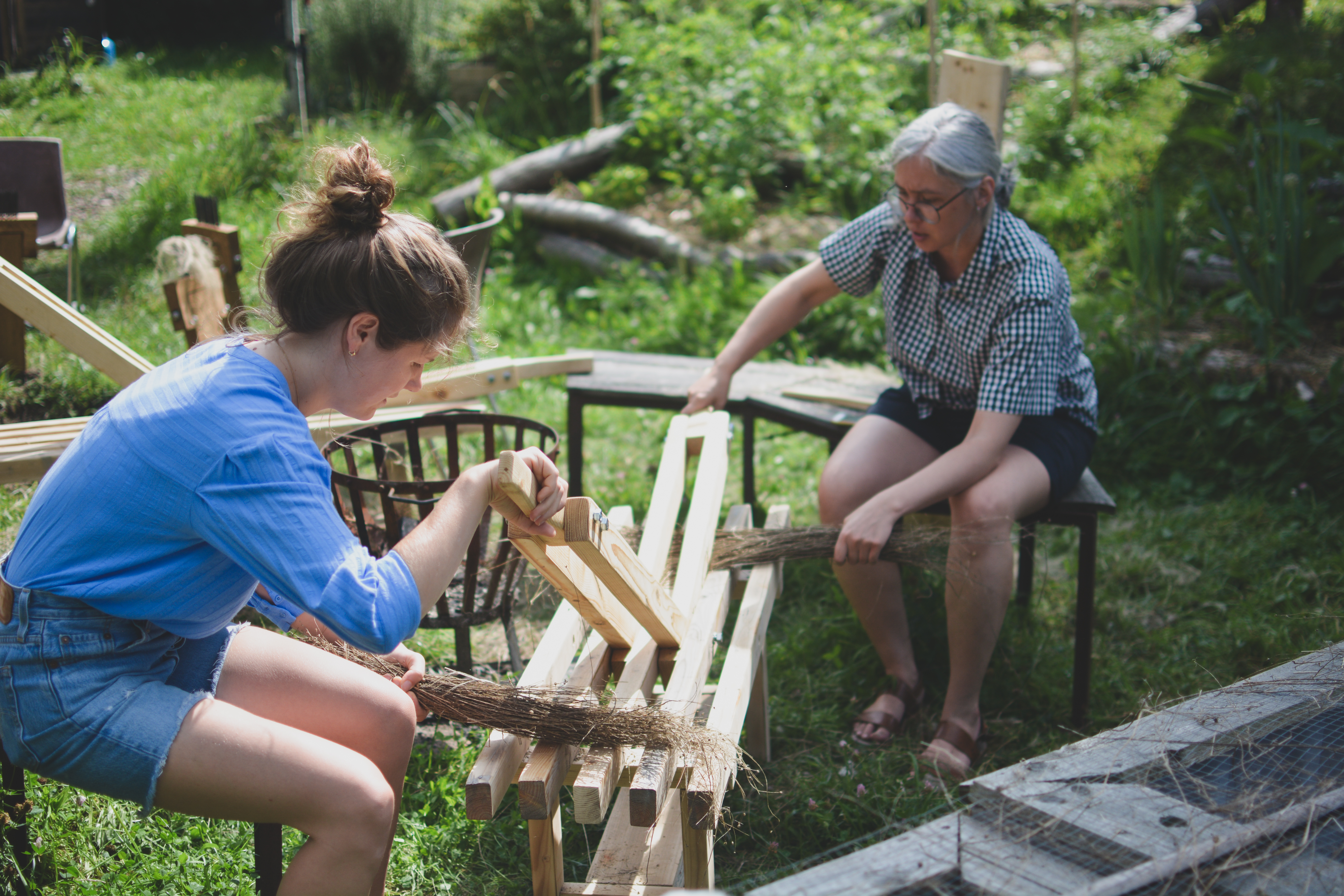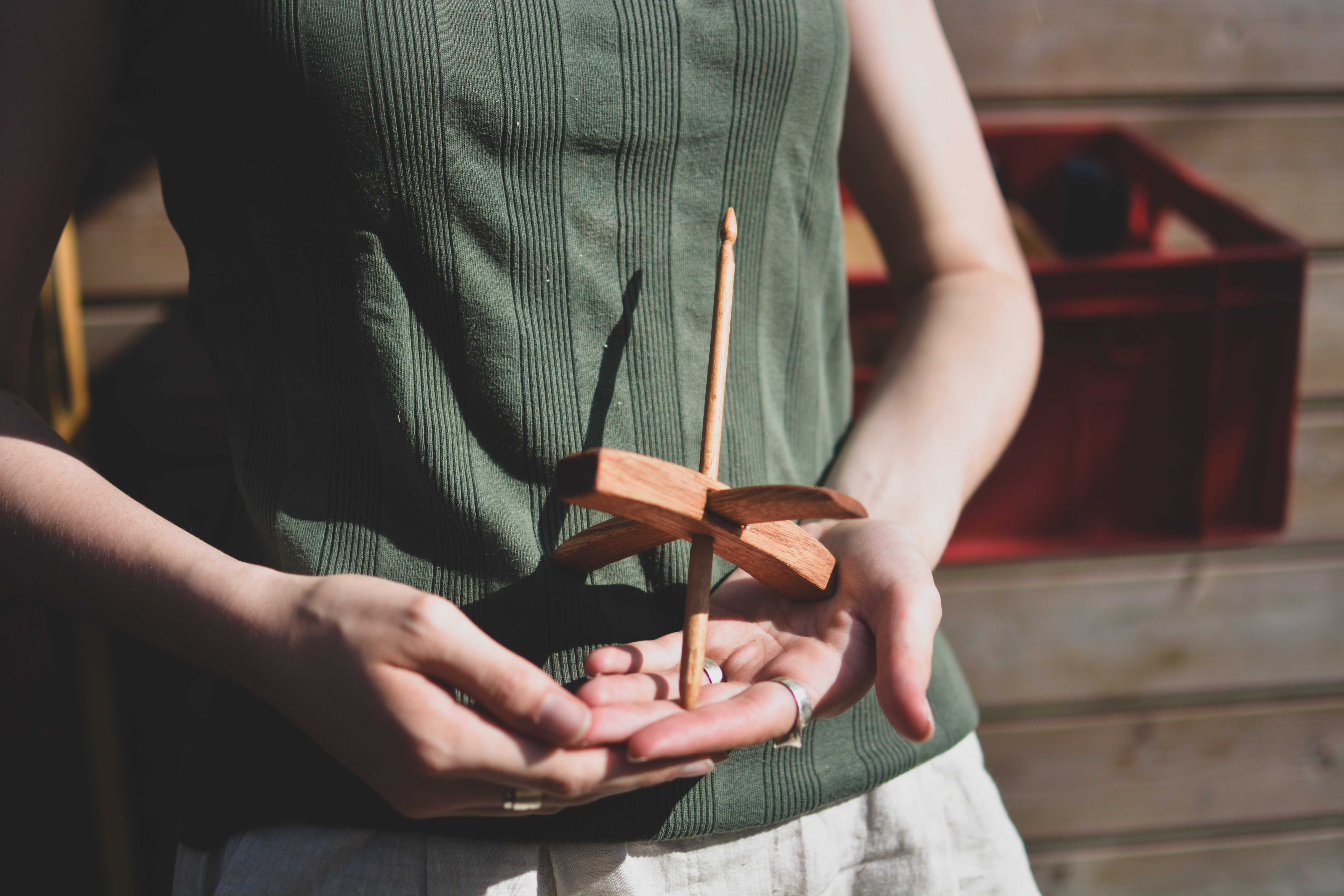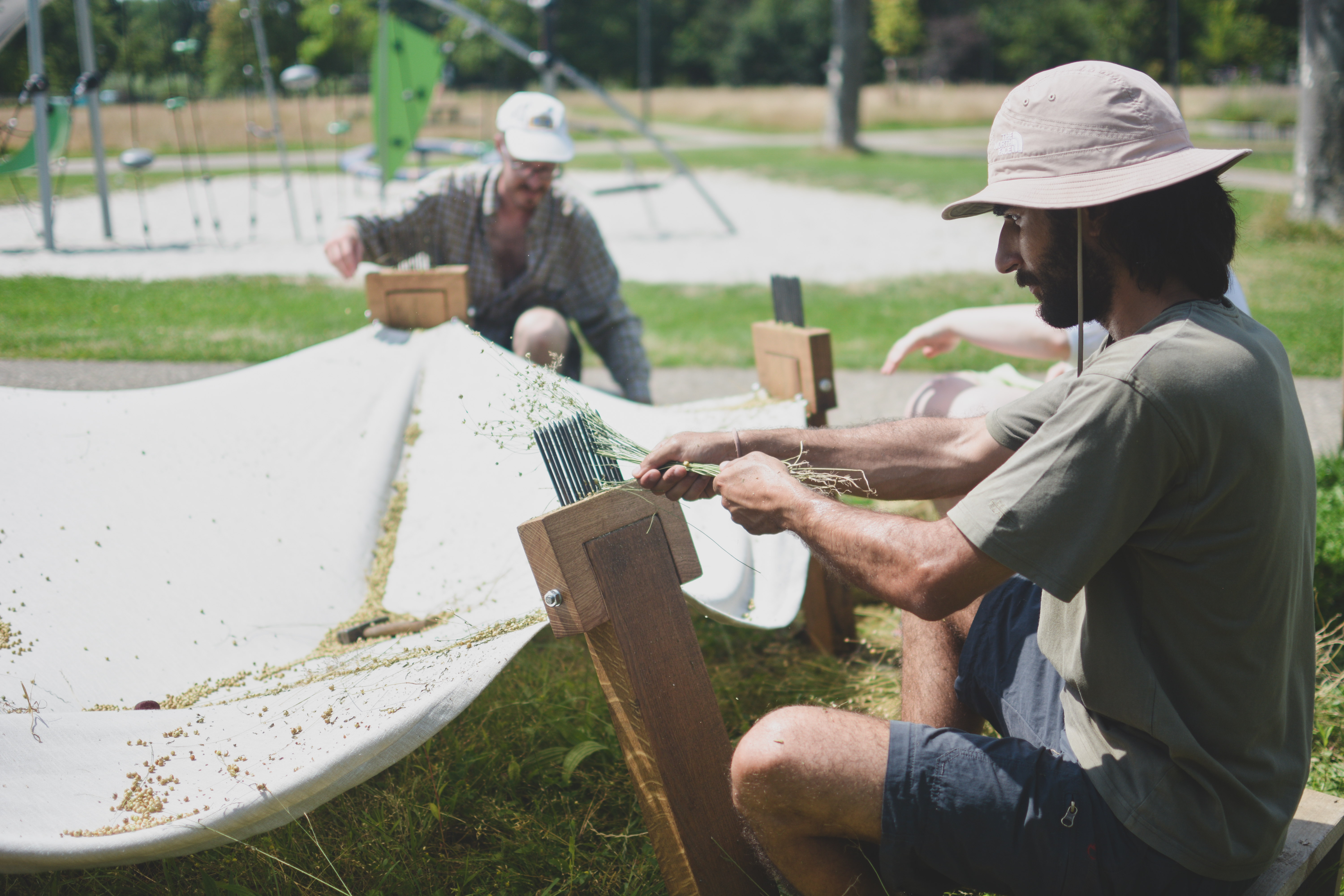







Welkom in Vlasselt
The flax industry has played a significant role in our Flemish history. As early as the 14th century, this plant was used in our region to create textiles, leading to a large industry by the 16th century. Today, however, this craft has almost disappeared from our society. Machines took over the work and now produce masses of textiles at a lightning-fast pace. In our opinion, something essential has been lost in this transition from handwork to mechanical production.
Ironically, assembly-line work has led to the destruction of our bond with the work itself. The distance between us and the process seems to have diminished our appreciation for the final product. The average Belgian throws away sixty clothing items per year, amounting to almost fifteen kilograms, making us the unfortunate record holder in Europe.
What was once a purely natural product is now increasingly mixed with synthetic materials such as polyester, nylon, polyamide, or acrylic. As a result, this enormous waste mountain is becoming more and more difficult to recycle, and microplastics are now making their way to the most remote places in the world, even being found in our own bodies.
In the past, many steps had to be taken to turn flax into linen. The success of these tasks was often celebrated by the entire community. Young and old came together to help with the harvest, and a large celebration was held when it was successful. Tasks such as spinning or weaving were also always moments for dialogue.
With 'Welkom in Vlasselt', we explored how the lost elements of the flax industry could be restored to their former glory. For six months, we went through all the steps that were once taken to turn flax into linen. By placing these steps in a contemporary context, we aim to broaden participants' perspectives regarding their appreciation for textiles, the benefits of natural materials, and the connection with the community.
‘Welkom in Vlasselt’ was initiated by Nomad City for the city of Hasselt. The project was lead by Elke Cuppens, Régine Schaekers and Stef Lemmens.
More info here
The flax industry has played a significant role in our Flemish history. As early as the 14th century, this plant was used in our region to create textiles, leading to a large industry by the 16th century. Today, however, this craft has almost disappeared from our society. Machines took over the work and now produce masses of textiles at a lightning-fast pace. In our opinion, something essential has been lost in this transition from handwork to mechanical production.
Ironically, assembly-line work has led to the destruction of our bond with the work itself. The distance between us and the process seems to have diminished our appreciation for the final product. The average Belgian throws away sixty clothing items per year, amounting to almost fifteen kilograms, making us the unfortunate record holder in Europe.
What was once a purely natural product is now increasingly mixed with synthetic materials such as polyester, nylon, polyamide, or acrylic. As a result, this enormous waste mountain is becoming more and more difficult to recycle, and microplastics are now making their way to the most remote places in the world, even being found in our own bodies.
In the past, many steps had to be taken to turn flax into linen. The success of these tasks was often celebrated by the entire community. Young and old came together to help with the harvest, and a large celebration was held when it was successful. Tasks such as spinning or weaving were also always moments for dialogue.
With 'Welkom in Vlasselt', we explored how the lost elements of the flax industry could be restored to their former glory. For six months, we went through all the steps that were once taken to turn flax into linen. By placing these steps in a contemporary context, we aim to broaden participants' perspectives regarding their appreciation for textiles, the benefits of natural materials, and the connection with the community.
‘Welkom in Vlasselt’ was initiated by Nomad City for the city of Hasselt. The project was lead by Elke Cuppens, Régine Schaekers and Stef Lemmens.
More info here